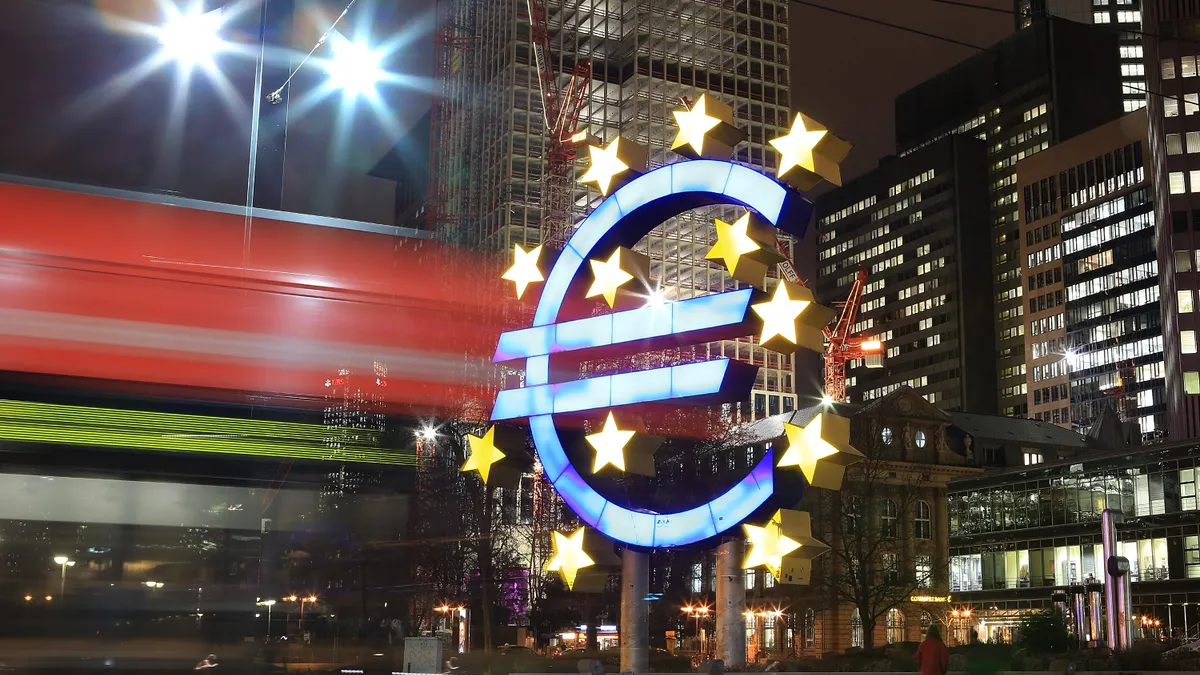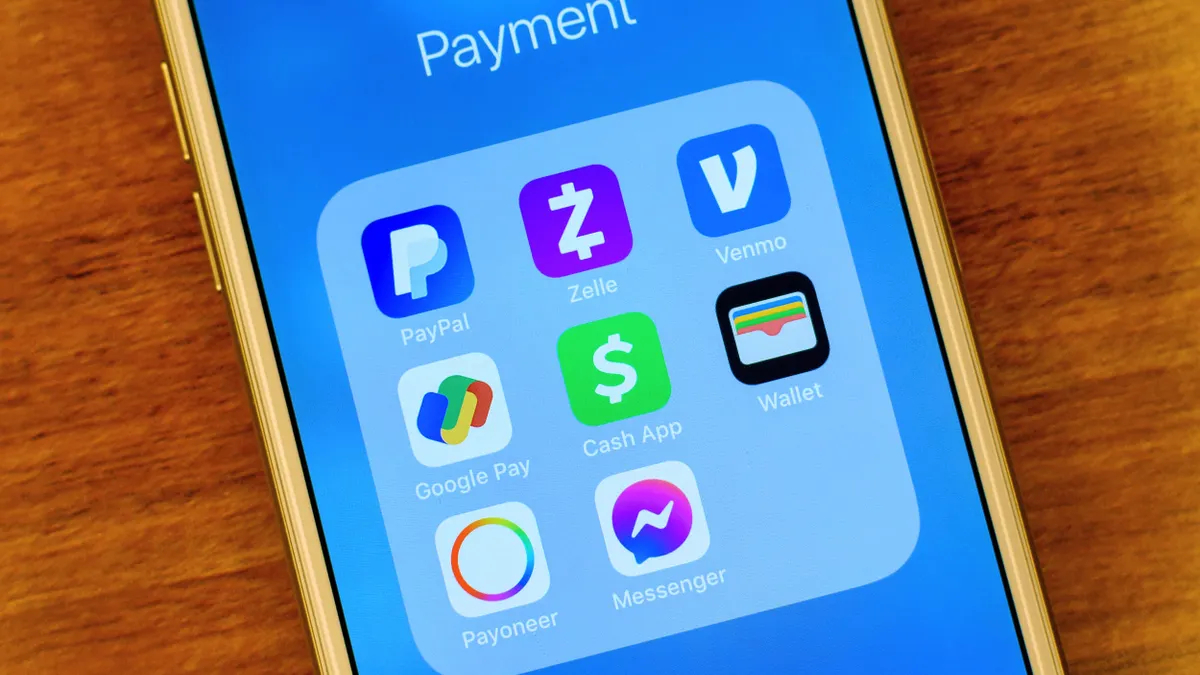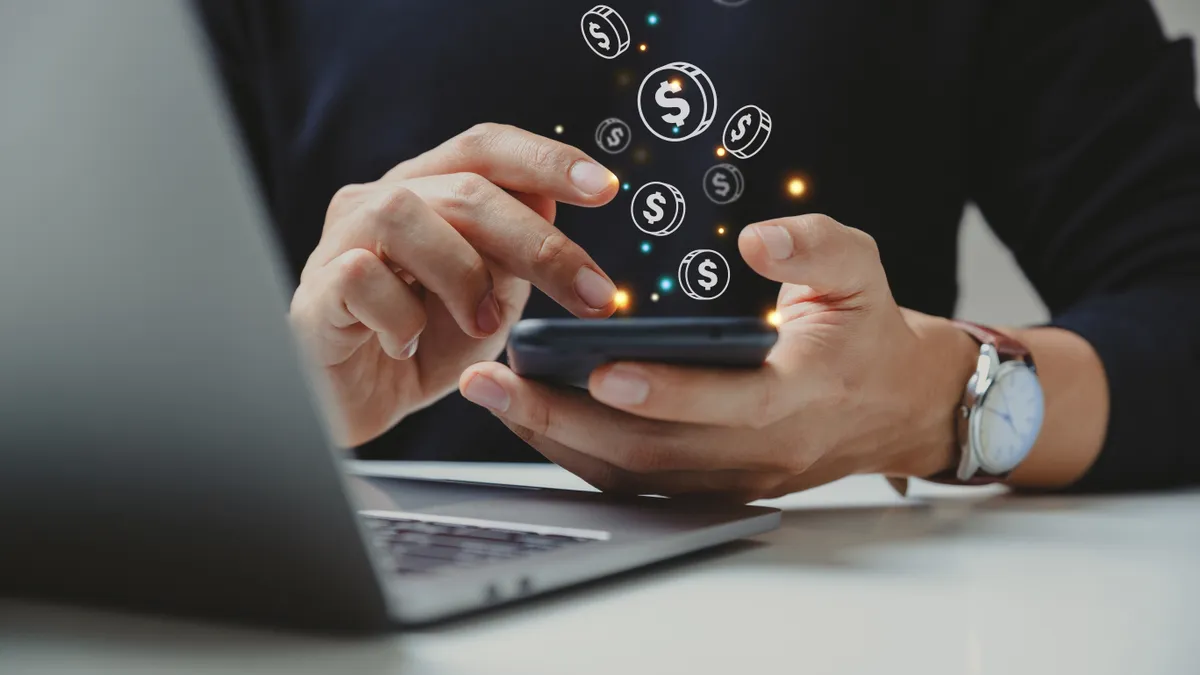Fintech Chime said Monday it seeks to raise up to $832 million through its initial public offering.
The San Francisco-based fintech is offering 32 million shares of Class A common stock priced between $24 and $26 per share.
Out of the 32 million shares, around 25.9 million will be offered by Chime, while nearly 6.1 million shares will be offered by existing shareholders. Additionally, Chime plans to grant the underwriters a 30-day option to purchase up to an additional 4.8 million of its Class A common stock, according to an amended filing with the Securities and Exchange Commission.
Chime, founded in 2012 by Chris Britt and Ryan King, has dubbed itself a digital banking alternative offering fee-free banking. The fintech’s probable IPO date, as noted on Nasdaq, is June 12, and the offer amount, as set by Chime, is $956.8 million, with approximately 332 million shares outstanding.
Chime intends to list its Class A common stock on Nasdaq under the ticker symbol “CHYM.” In the SEC filing Chime noted that it is not a bank and its banking services are provided by The Bancorp Bank and Stride Bank, which offer Federal Deposit Insurance Corp.-insured accounts.
Chime is targeting a valuation of up to $11.2 billion on a fully diluted basis, Reuters reported.
While filing S-1 paperwork with the SEC last month, Chime had said the number of shares to be offered and the price range for the proposed offering have not yet been determined. According to Brian Graham, a partner at financial service advisory and investment firm Klaros Group, Chime waited to declare the stock price “to test the waters and figure out investor appetites” on what price they were willing to pay.
When a company is going public for the first time, it tries to compare itself to a similar entity; for Chime, that’s Dave. For a company such as Circle, it would be Coinbase, Graham said. The increase in the stock price of Chime competitors signals a rebound in investor interest in this sector, while the recent surge in IPOs is driven by rising stock prices of these publicly traded fintech companies, Graham pointed out.
Stablecoin issuer Circle also filed IPO paperwork last month and aims to raise $624 million through the sale of its Class A common stock. Meanwhile, eToro, a social investment fintech founded in Israel, said last month it intended to raise $500 million through its IPO.
The stock prices of fintech companies dropped sharply in late 2022, largely due to rising interest rates and increased risk aversion by investors. However, since late 2024, stock prices have recovered, and along with that, there has been an increased interest in IPOs, Graham clarified.
Investor perspectives drive market prices, and their desire to own fintech stocks influences stock prices, he noted.
“If you can sell what you're trying to sell for a lot more, you're more likely to want to sell it,” Graham said.
For Chime to understand what investors think about its valuation, it needs to communicate with them. But a company is not legally permitted to discuss its market standing until it files an S-1 – a prerequisite for such a conversation, according to Graham.
Chime executives may have had several conversations with investors to gauge their appetite and market conditions before setting the price range, he added.
Other factors contributing to the uptick in IPOs include a more favorable regulatory environment and a greater acceptance of lower valuations than previously anticipated, Graham noted.
In the case of neobanks, “less adversarial and less negative” guidance towards bank-fintech partnerships is proving beneficial for the fintechs, he said.
Tariff-related volatility, however, has pushed back IPO plans for other fintechs, such as buy now, pay later firm Klarna and ticketing platform StubHub. Further, Klarna’s reported loss for the first quarter totaled $99 million – up from the $47 million loss it reported a year ago. The company has paused its IPO plan, which was set to value the firm at over $15 billion.
Chime’s revenue reached $1.67 billion in 2024 – up from $1.28 billion in 2023, while its loss decreased from $203 million in 2023 to $25 million in 2024, according to the company.
Companies that hold 5% or more of Chime’s capital stock include DST Global, Crosslink Capital, AI Bells, General Atlantic, Menlo Ventures and Cathay Innovation, according to the SEC filing.
Though fintechs are pursuing IPOs after a two-year lull, Graham doubts it’s going to open the IPO floodgates. Not every fintech company is mature enough to handle the costs and scrutiny that come with being a public company, he added.
The recent IPOs could go either way and steer the market depending on whether they are successful or not, according to Deven Monga, vice president of Sales at Ideals, a global software-as-a-service company that back M&A, IPOs, and venture capital deals.
“If Chime, Circle and other similar companies are successful in their IPOs, this could encourage more fintech companies to look at IPOs as a way to raise capital, grow their profile and improve their offerings,” Monga said via email.
“Conversely, we could see more companies explore mergers and acquisitions as an avenue for growth should Chime, Circle and others be unsuccessful in their IPOs. This is particularly true as traditional financial institutions like banks look to expand their tech offerings and could look to acquire fintech companies to do so.”





















